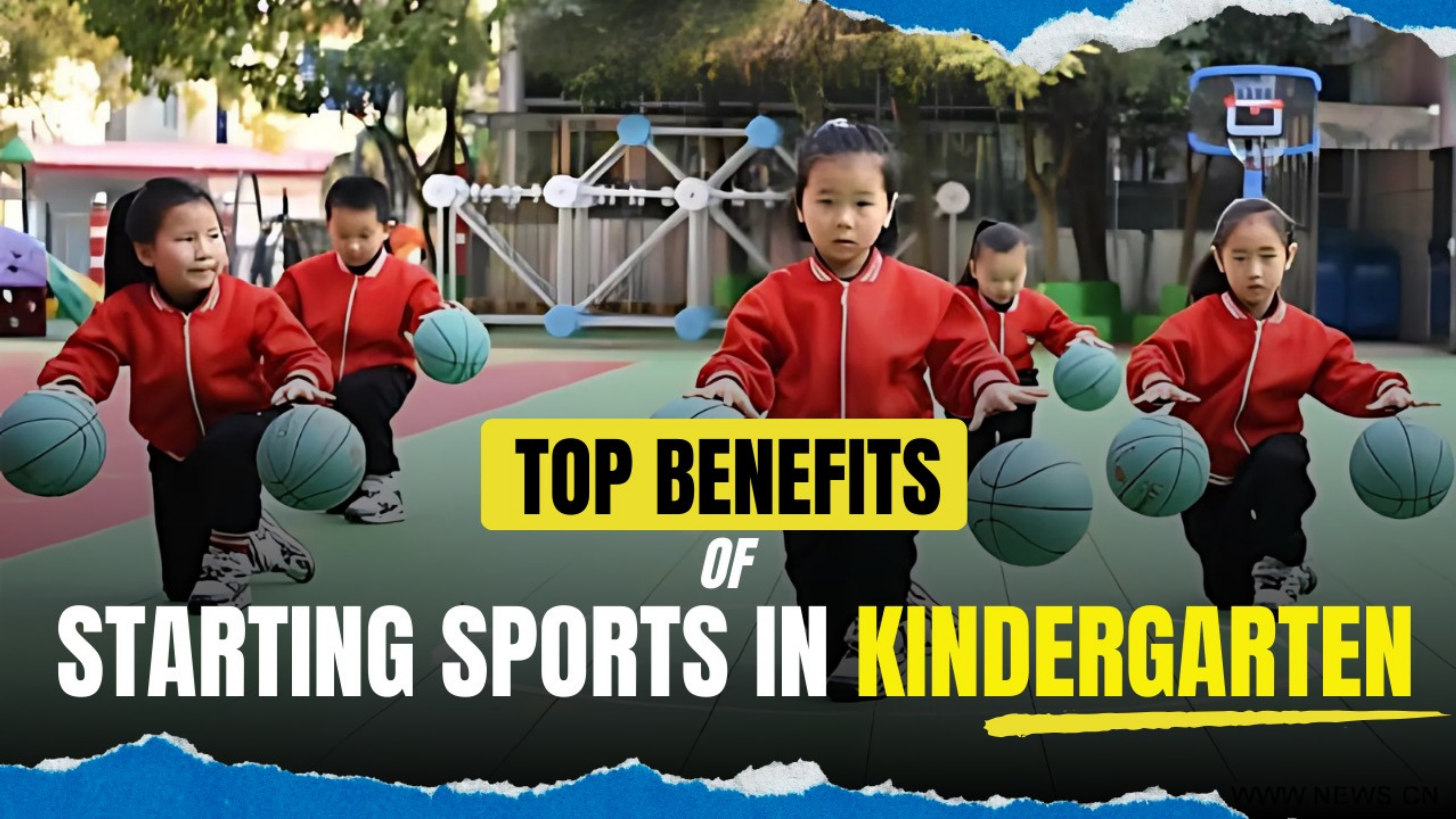Top Benefits of Starting Sports in Kindergarten
Sports are more than just games for children—they are essential tools that help shape physical health, social skills, and emotional development. Starting sports in kindergarten sets the foundation for a lifetime of healthy habits, teamwork, and confidence. At this early stage, children are naturally curious, energetic, and eager to explore new activities, making it the perfect time to introduce them to structured play and sports.
In this blog, we’ll explore the top benefits of starting sports in kindergarten and why parents and educators should encourage children to participate in age-appropriate sports activities.
1. Develops Strong Physical Health Early On
One of the most obvious benefits of introducing sports in kindergarten is building strong physical health. Kids between the ages of 4–6 are in a rapid growth phase where their bones, muscles, and motor skills are developing at a fast pace. Sports can channel their natural energy into structured activities that promote strength and coordination.
-
Enhances motor skills: Running, jumping, balancing, and throwing all improve gross motor coordination.
-
Builds endurance and stamina: Regular activity improves cardiovascular health.
-
Promotes flexibility and strength: Sports like gymnastics or basic yoga improve posture and flexibility.
-
Prevents childhood obesity: Active children are less likely to develop weight-related issues.
By starting early, children are more likely to adopt physical activity as a normal part of their lifestyle.
2. Encourages Discipline and Focus
Kindergarten sports aren’t about winning or losing—they’re about learning discipline and focus. Simple routines like standing in line, waiting for a turn, or following basic rules introduce children to structured behavior.
-
Sports teach patience—children learn to wait for their turn.
-
Improves concentration—they must focus on instructions to complete tasks.
-
Encourages routine—consistent practice fosters a sense of responsibility.
These small habits often carry over into academics and daily life, setting the stage for better self-control and learning skills.
3. Builds Social Skills and Teamwork
Sports are an excellent platform for children to interact with peers. In kindergarten, kids start developing social awareness and sports help them understand concepts like sharing, cooperation, and empathy.
-
Teamwork: Playing in groups teaches them how to cooperate toward a shared goal.
-
Communication: Children learn to express themselves and listen to others.
-
Friendship-building: Sports create opportunities for new friendships outside of classrooms.
At an age where kids are learning about relationships, sports provide a fun and natural way to practice these skills.
4. Boosts Self-Confidence and Emotional Development
Children who participate in sports often show greater self-esteem and resilience. Small achievements—like scoring a goal or finishing a race—give them a sense of pride and accomplishment.
-
Celebrating small wins encourages positive reinforcement.
-
Coping with losses teaches resilience and emotional control.
-
Increased confidence motivates them to try new things beyond sports.
Sports give children a safe space to learn about success, failure, and emotional balance.
5. Improves Cognitive Development and Academic Performance
It may sound surprising, but early exposure to sports enhances brain development too. Physical activities improve blood circulation and oxygen supply to the brain, which supports memory, problem-solving, and creativity.
-
Studies show kids active in sports perform better in school.
-
Sports teach strategic thinking through games and challenges.
-
Improves attention span and learning readiness in classroom activities.
By balancing physical and mental growth, sports prepare children to excel academically and socially.
6. Instills Healthy Lifestyle Habits for Life
Children who start sports early are more likely to remain active as adults. Sports in kindergarten make physical activity a natural and enjoyable part of their daily routine.
-
Encourages healthy eating habits—many sports programs include lessons on nutrition.
-
Reduces screen time by creating fun alternatives.
-
Creates awareness about fitness, hygiene, and overall well-being.
Healthy habits developed in early childhood often stay with kids into adulthood, lowering the risks of chronic diseases later in life.
7. Enhances Creativity and Imagination
Sports aren’t only about structure; they also boost creativity. Many kindergarten-level sports involve imaginative play, fun exercises, and creative movements.
-
Children invent their own games and rules.
-
They develop storytelling skills through role-play in activities.
-
Sports like dance, gymnastics, or martial arts enhance body awareness and creativity.
This balance of structure and imagination helps children grow into well-rounded individuals.
8. Strengthens Parent-Child and Teacher-Student Bonds
Sports programs in kindergarten often involve parents and teachers as guides. This strengthens relationships and builds trust.
-
Parents enjoy bonding moments during practice or games.
-
Teachers use sports to observe and nurture children’s growth.
-
Encouragement from adults motivates kids to do better.
These shared experiences build supportive environments for children to thrive.
Conclusion
Starting sports in kindergarten is more than just fun—it’s an investment in a child’s future. From building strong physical health and social skills to enhancing academic performance and emotional resilience, sports shape young children into healthier, more confident, and disciplined individuals.
By encouraging early sports participation, parents and educators provide children with lifelong benefits that go far beyond the playground.
Remember: It’s not about competition at this age—it’s about enjoyment, exploration, and learning valuable life skills.

